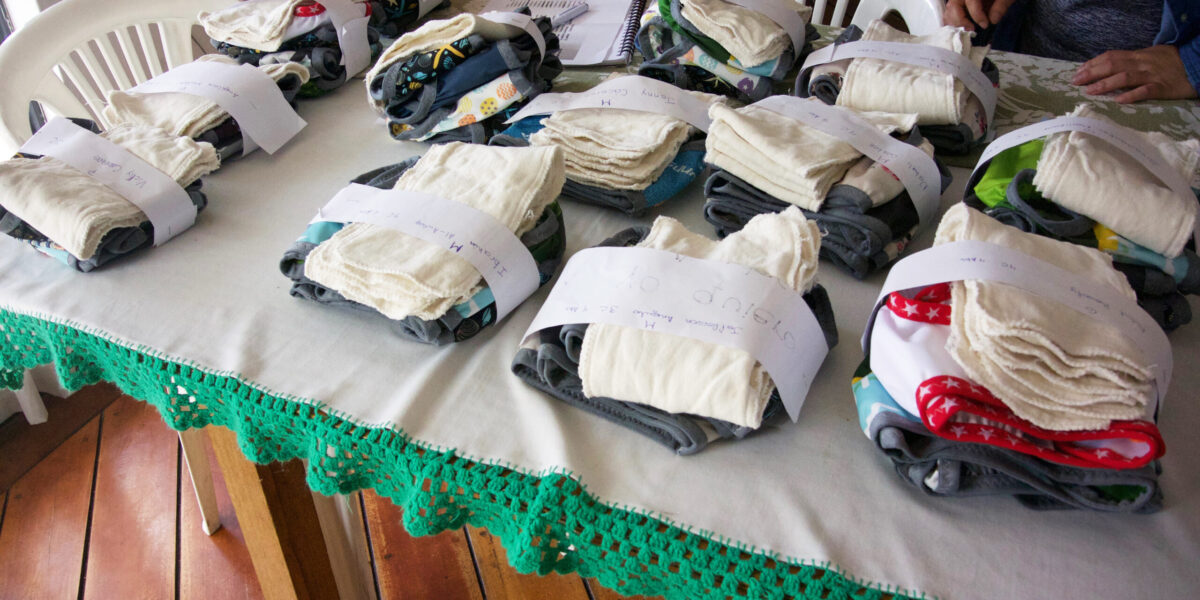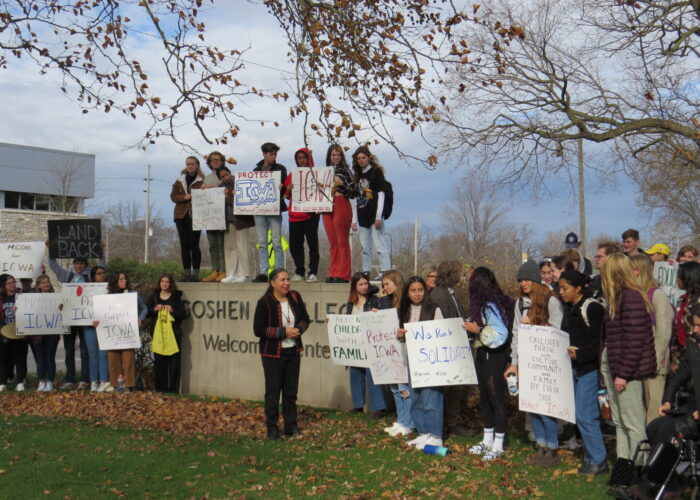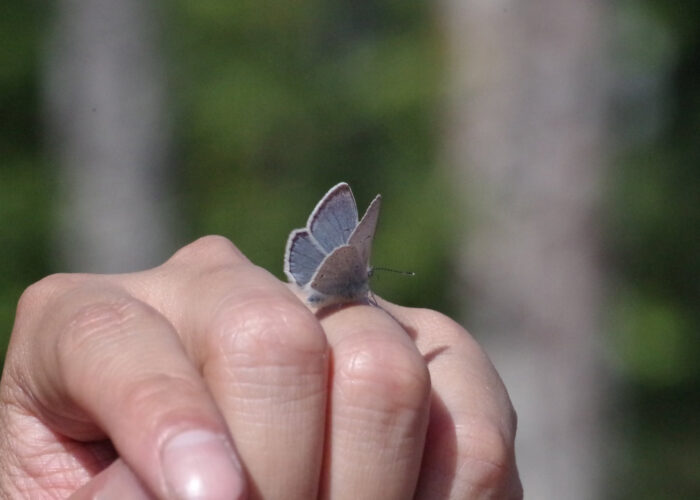Four and half years ago, Delicia Bravo sewed her first cloth diaper for her daughter, Aliyah. Now, Bravo makes and coordinates the Yura (Kichwa for plant or tree) Project, which produces cloth diapers for families seeking refuge in Ecuador. This country receives more refugees than any other in Latin America.
"When we had Aliyah, we liked all the benefits of cloth diapers. They were cheaper, better for the environment, and healthier for our girls," explained Bravo, who gave birth to Ariana a year and a half ago. With the help of her mother-in-law, Bravo learned to make diapers for their growing family.
Bravo and her husband, Peter Wigginton, arrived in Ecuador in 2015, and serve through Mennonite Mission Network as Ecuador partnership coordinators. They use their gifts in music, education, and children’s and youth ministries for local congregations. Their primary relationship is with Iglesia Cristiana Anabautista Menonita de Ecaudor (ICAME), which committed to walk with and support the refugees who arrive in their community since its very beginning in 2001. Today, Mennonite Central Committee provides the primary funding for the Quito church’s refugee project.
The first set of diapers and covers were shared with refugees in September 2017.
Over the course of this first year, the Yura Project received a donation of waterproof diaper fabric from Diaper Fabric Direct. "They also gave us good deals on other supplies such as snaps and elastic," said Bravo.
The cotton diaper cloth was purchased locally. Jobs were created for two refugee Afghan women. One sewed 240 diapers, and the other sewed inserts. By buying supplies locally and hiring refugees, Bravo and Wigginton hope to create a sustainable project, one that benefits all involved—those who create the diapers and those who receive them, and lower general waste for the environment.
"The idea (of the name Yura) is that sewn crafts can be good for the environment," said Wigginton.
Bravo and a diverse team of three Mission Network Journey International volunteers from the United States, two paid Afghan women, and two Ecuadorian volunteers, have resourced 30 families with 120 diaper covers, which can save the families an average of $1,500 during the two-year period that a child wears diapers.
Daniela Sanchez, a leader and member of ICAME, explained, "We are a small effort within Quito, which receives so many people seeking refugee status. So we try to focus on families or women with children. When they come to us, we can give them mattresses, blankets, food, and now cloth diapers. And we try to connect them to other organizations with even more resources."
The refugee project supports 100–110 refugee families a month, like Maria’s*. Maria is a young mother of two who arrived in Quito this past June with her partner, Jose*, her sister, her sister’s two children, her brother, and her mother. They fled violence inflicted on them by a remnant rebel group that remains active following the peace agreement signed in 2016. Originally a family of 14 people, they were forced to leave seven behind in Colombia.
"They don’t know if their siblings are dead, or if they have been forced to join the rebel group," said Sanchez. "And if they were forced to join, it is like they are dead. They are forced to do such horrible things. For every Maria you meet, there are dozens more with the same story."
Thousands of refugees like Maria make their way to Ecuador every month. In recent years, the estimated numbers have doubled due to the instability and food shortages in Venezuela.
"According to recent trends over the past few years, Ecuador has received about 1,000 Colombian refugees a month," said Wigginton. "Since the peace accords, that number has supposedly dropped, although the refugee project has not seen any drop in their numbers."
Additionally, Ecuador approved 22,000 visas in the first half of 2018 because of the crisis in Venezuela, and receives more refugees than all of the rest of Latin America countries combined, according to an article from El Comercio. This does not take into account the additional people who do not go through the visa process, but still arrive in Ecuador as refugees.
With this volume of people needing assistance, the Yura Project has high demand for their reusable, low-cost diapers.
"The reality is that in Latin America, babies (especially babies from refugee families) don’t get the luxury of so many diaper changes a day," explained Wigginton. "[Cloth diapers] mean less diapers in landfills and less money spent. It also means babies are less likely to get rashes and infections."
The Yura Project is also beginning to produce bags made from used T-shirts, and cloth menstrual pads. There is also exploration about the possibility of reaching beyond the refugee population in Quito to others, such as indigenous communities, who might benefit from the Yura Project’s products.
*Pseudonyms have been used for safety.

Delicia Bravo (middle) trains Journey Internatioinal program participants Quinn Kathrineberg and Karina Brandt how to make the cloth diapers. Photo by Peter Wigginton.






